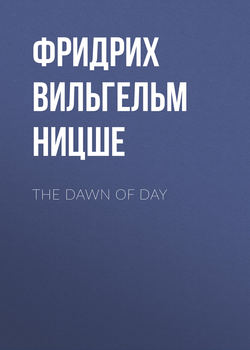Читать книгу The Dawn of Day - Фридрих Вильгельм Ницше - Страница 86
Book I
84
ОглавлениеThe Philology of Christianity. – How little Christianity cultivates the sense of honesty can be inferred from the character of the writings of its learned men. They set out their conjectures as audaciously as if they were dogmas, and are but seldom at a disadvantage in regard to the interpretation of Scripture. Their continual cry is: “I am right, for it is written” – and then follows an explanation so shameless and capricious that a philologist, when he hears it, must stand stock-still between anger and laughter, asking himself again and again: Is it possible? Is it honest? Is it even decent?
It is only those who never – or always – attend church that underestimate the dishonesty with which this subject is still dealt in Protestant pulpits; in what a clumsy fashion the preacher takes advantage of his security from interruption; how the Bible is pinched and squeezed; and how the people are made acquainted with every form of the art of false reading.
When all is said and done, however, what can be expected from the effects of a religion which, during the centuries when it was being firmly established, enacted that huge philological farce concerning the Old Testament? I refer to that attempt to tear the Old Testament from the hands of the Jews under the pretext that it contained only Christian doctrines and belonged to the Christians as the true people of Israel, while the Jews had merely arrogated it to themselves without authority. This was followed by a mania of would-be interpretation and falsification, which could not under any circumstances have been allied with a good conscience. However strongly Jewish savants protested, it was everywhere sedulously asserted that the Old Testament alluded everywhere to Christ, and nothing but Christ, more especially His Cross, and thus, wherever reference was made to wood, a rod, a ladder, a twig, a tree, a willow, or a staff, such a reference could not but be a prophecy relating to the wood of the Cross: even the setting-up of the Unicorn and the Brazen Serpent, even Moses stretching forth his hands in prayer – yea, the very spits on which the Easter lambs were roasted: all these were allusions to the Cross, and, as it were, preludes to it! Did any one who kept on asserting these things ever believe in them? Let it not be forgotten that the Church did not shrink from putting interpolations in the text of the Septuagint (e. g. Ps. xcvi. 10), in order that she might later on make use of these interpolated passages as Christian prophecies. They were engaged in a struggle, and thought of their foes rather than of honesty.
